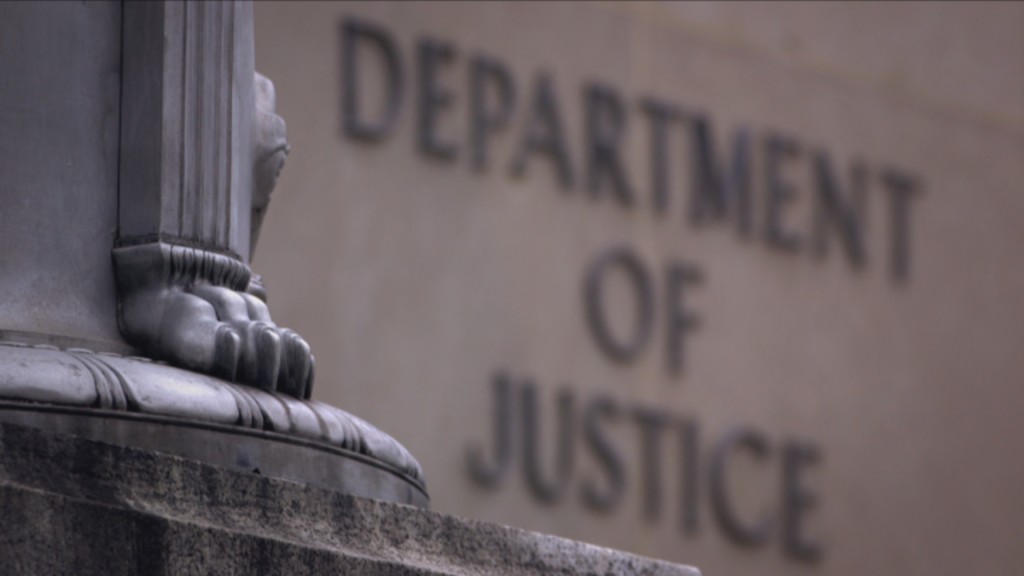Senators Bash DOJ for “Evasive” Response on “Too Big To Jail”

March 5, 2013
Share
Two U.S. senators have criticized the Department of Justice for offering an “aggressively evasive” response to their questions in an ongoing war of words over why major banks have avoided prosecution for their role in the financial crisis.
In a Jan. 29 letter, Senators Sherrod Brown (D-Ohio) and Chuck Grassley (R-Iowa) asked Attorney General Eric Holder a series of questions about the implications of crisis-related bank settlements that both lawmakers called “disproportionately low.” The settlements raised concerns, they wrote “that ‘too big to fail’ Wall Street banks enjoy a favored status, in statute and in enforcement policy.”
The letter cited statements made by Lanny Breuer, who led bank enforcement during his tenure as assistant attorney general, in an interview with correspondent Martin Smith for the FRONTLINE film The Untouchables. In the interview (which you can read here), Breuer explained factors that contribute to the decision to bring an enforcement action:
In any given case, I think I and prosecutors around the country, being responsible, should speak to regulators, should speak to experts, because if I bring a case against institution A, and as a result of bringing that case, there’s some huge economic effect — if it creates a ripple effect so that suddenly, counterparties and other financial institutions or other companies that had nothing to do with this are affected badly — it’s a factor we need to know and understand.
Such considerations, Breuer said in a 2012 speech to the New York City Bar Association, “literally keep me up at night.”
The senators said Breuer’s statements raised “important questions about the Justice Department’s prosecutorial philosophy.” Brown and Grassley asked the DOJ to clarify, specifically requesting information on any cases in which considerations about financial markets prevented prosecutions or lessened settlements. They also asked for a list of outside experts consulted in making prosecutorial decisions, and what those experts were paid.
In a response dated Feb. 27, Principal Deputy Assistant Attorney General Judith Appelbaum defended the department’s record, writing that “No corporate entity, no matter how large, is immune from prosecution.”
The DOJ can win certain concessions through settlements that it otherwise could not achieve through a trial, Appelbaum said, such as the requirement that a company cooperate with any ongoing criminal investigation by the department.
She also wrote that in deciding whether to take a case to trial, it is critical for prosecutors to determine any “collateral consequences” that an enforcement action may mean for “investors, pension holders, customers, employees, and others who were not personally culpable.” To that end, “it is entirely appropriate” for prosecutors to consult with experts at regulatory agencies or at firms that are the target of an investigation.
In a statement issued last week, Brown and Grassley said: “The Justice Department’s response is aggressively evasive. It does not answer our questions.” They called Appelbaum’s letter “unsatisfactory,” noting that it failed to include a list of any outside experts consulted by the department.
“The Department’s only clear response was that it speaks to regulators and the banks themselves. So either regulators are urging the Department to take a soft approach, or the Department is easily swayed by misleading Wall Street arguments.”
The Justice Department “owes us a complete response,” they added.
A spokesman for the DOJ was not available for comment.

Related Documentaries
Latest Documentaries
Related Stories
Related Stories
Explore
Policies
Teacher Center
Funding for FRONTLINE is provided through the support of PBS viewers and by the Corporation for Public Broadcasting, with major support from Ford Foundation. Additional funding is provided the Abrams Foundation, Park Foundation, John D. and Catherine T. MacArthur Foundation, Heising-Simons Foundation, and the FRONTLINE Trust, with major support from Jon and Jo Ann Hagler on behalf of the Jon L. Hagler Foundation, and additional support from Koo and Patricia Yuen. FRONTLINE is a registered trademark of WGBH Educational Foundation. Web Site Copyright ©1995-2025 WGBH Educational Foundation. PBS is a 501(c)(3) not-for-profit organization.





















